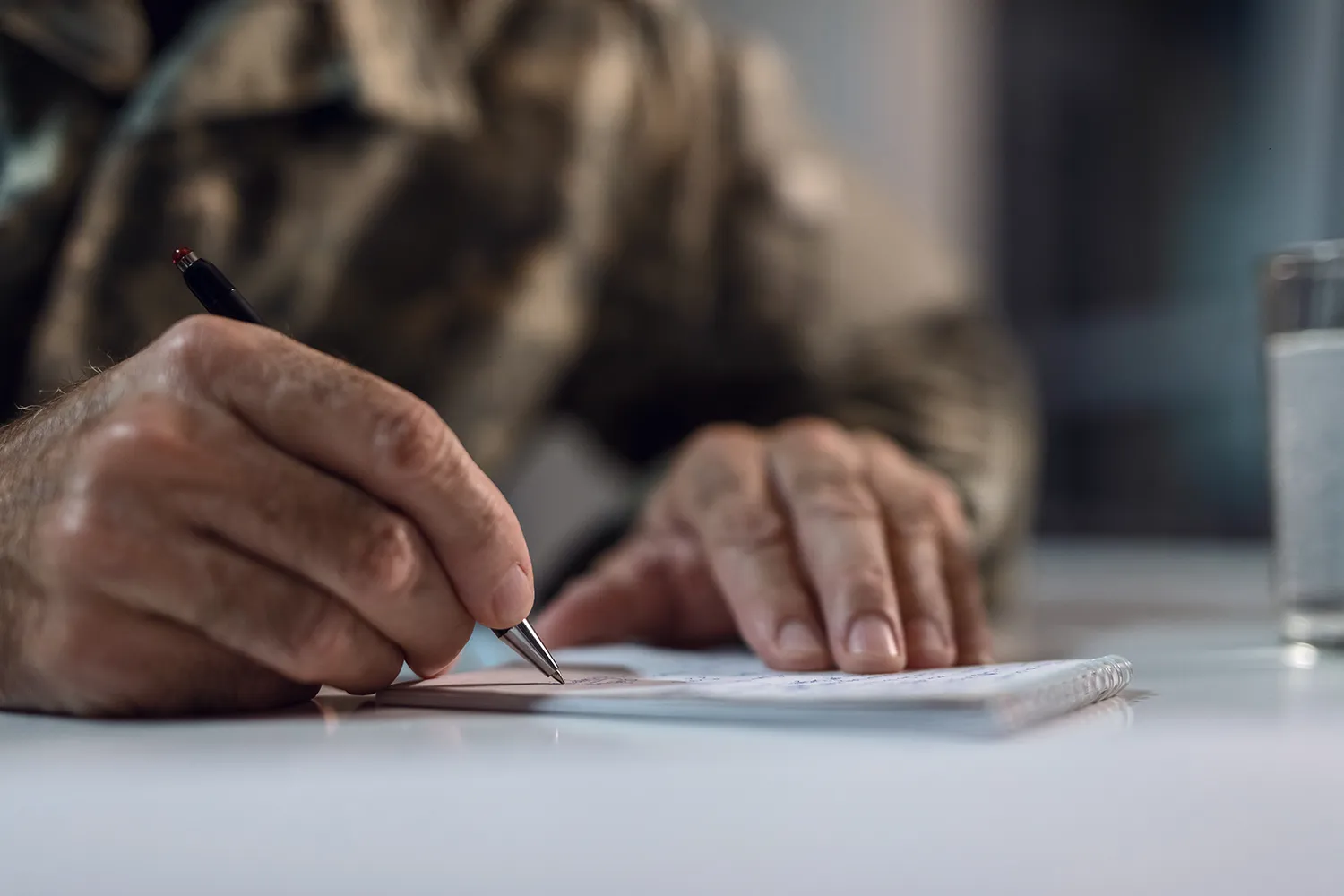Evidence from Records
When we first begin work on a military claim there are different types of records that we will request from the outset. Some of these depend on the nature of your claim. These can include:
- Personnel records
- Service medical records
- Civilian GP records
- Any civilian hospital records
- Counselling records
- Veterans Agency records/Armed Forces Compensation Scheme file
- Service complaint records
- Any other relevant documents you possess.
Evidence is requested from a variety of different places. Service records will need to be requested from either the Ministry of Defence (MoD), the Veterans Agency or your current unit if you are still in service.
We request civilian medical records directly from your GP and the hospitals you have attended, as well as any organisations you may have received counselling from. These organisations will generally have one month from the date of the request to provide us with the records, however they can extend this deadline if necessary.
It’s important to note that these records will usually involve sensitive and personal information. Before requesting such records, we will always require a signed consent form from clients to confirm that they are happy for us to have access to them. Client cooperation with this is important, and the information will not be shared without your informed consent.
What do we look for when reviewing the evidence?
- Accident dates
- Specific medical diagnoses
- Diagnosis dates
- Any treatment or medication prescribed
- Relevant pre-existing medical conditions
This is important for formulating a clear chronology to show causation of injury and the development of your condition or injury over time.
Instructing Experts
Expert opinions are key in civil claims, and it is common to instruct a medical expert in military claims. There are medical experts available for a wide variety of mental and physical injuries. An expert will have an appointment with you and review all of the medical evidence, along with our instructions, before drafting a report. Different medical experts will be required for different medical conditions.
In claims involving loss of earnings and career implications, we can also instruct employment experts and forensic accountants.
Witness Statements
We will also obtain witness statements as part of your evidence. As the claimant, you will have your own witness statement which will often be the longest. We will also obtain witness statements from other relevant people. For example, if a partner or family member has provided care and assistance for you, they will often be able to give a useful detailed account of your injury and the impact it had on you. Statements from friends and colleagues who you served with in the military can also be helpful, if they are willing to give evidence.
Before drafting a witness statement, we will have a telephone conversation with the witness and sometimes also send them a written questionnaire to complete. For the claimant’s witness statement, we will review the records listed above and will incorporate them into the statement. Once we have all of this information, we will draft the witness statements into the correct format for the court.
Summary
If you have suffered an injury while serving in the Armed Forces and want to know whether you may be able to bring a claim, please get in touch with our team. We can advise you on whether you have a claim worth pursuing and what the best course of action would be. If you do instruct us to bring a claim on your behalf, this is an overview of the type of the type of evidence we will use to assist.
Military Injury Claims
The most common claim types that we handle for our clients
Claim type not listed? Get in touch for a free assessment of your military injury claim.
Diane Askwith heads up the military injury claims team at Ison Harrison Solicitors. Meet The Team



